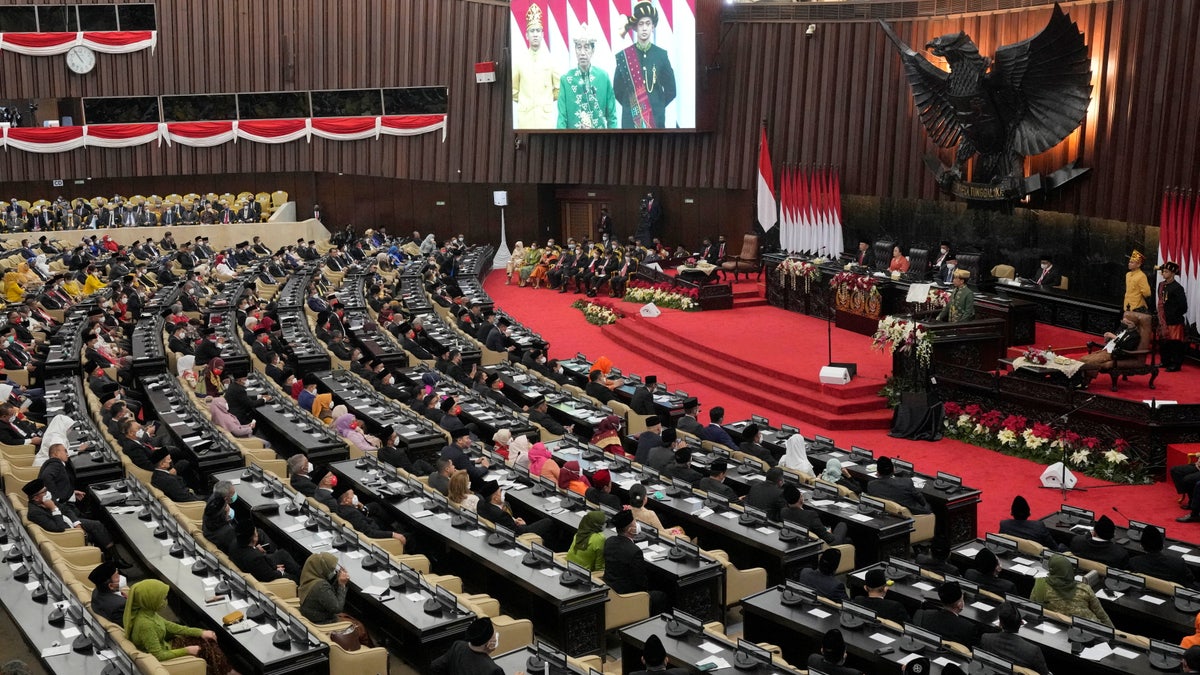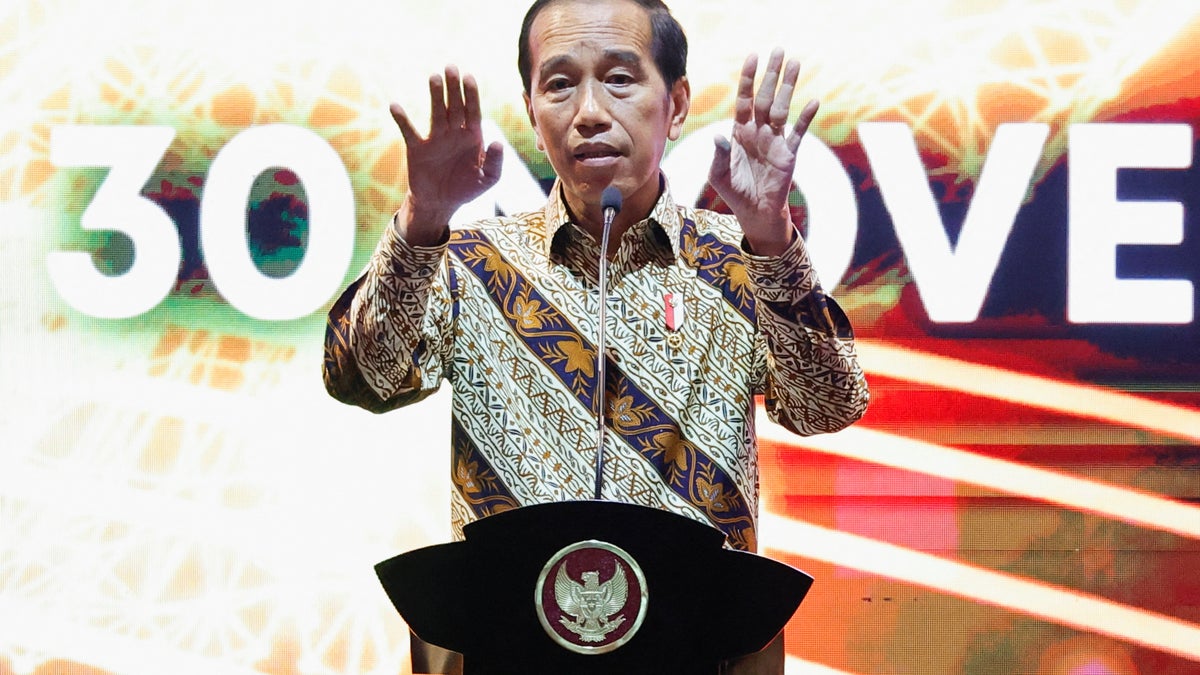Biden pledges $20 billion deal to Indonesia to help end its reliance on coal
West Virginia Coal Association president Chris Hamilton joined 'Fox & Friends First' to discuss the deal and the implications of Biden's green agenda on jobs and the economy.
Indonesia’s government is set to pass a new law that will punish sex outside of marriage with imprisonment as part of its national criminal code overhaul.
"We’re proud to have a criminal code that’s in line with Indonesian values," Edward Omar Sharif Hiariej, Indonesia’s deputy justice minister, told Reuters.
Only certain parties, such as close relatives, can report the crime, which will carry a sentence of up to one year in jail.
The new law is part of a raft of new policies the government will enact as part of an overhaul that lawmakers have worked on since declaring independence in 1945. The government expects to pass the new code on Dec. 15 but could do so as early as next week, according to Bambang Wuryanto, a lawmaker involved in drafting the legislation.
BIDEN ANNOUNCES $20B TO MOVE INDONESIA AWAY FROM COAL
The new code would apply to citizens and foreigners alike, raising concern among business groups that it could severely hamper holiday and destination travel investment in the country.

Indonesian President Joko Widodo, wearing traditional attire from the Bangka Belitung Islands, delivers his State of the Nation address ahead of the country's Independence Day at the parliament building in Jakarta on Aug. 16, 2022. (Tatan Syuflana/Pool via Reuters)
"For the business sector, the implementation of this customary law shall create legal uncertainty and make investors reconsider investing in Indonesia," said Shinta Widjaja Sukamdani, the deputy chairperson of Indonesia’s Employers’ Association (APINDO).
DOZENS DEAD AFTER EARTHQUAKE SHAKES INDONESIA'S MAIN ISLAND OF JAVA
Clauses related to morality, she added, would "do more harm than good," especially for businesses engaged in the tourism and hospitality sectors.

Indonesian President Joko Widodo gestures as he delivers his remarks during the annual meeting of Indonesia's central bank with its financial stakeholders in Jakarta on Wednesday. (Reuters/Willy Kurniawan)
But Hiariej dismissed the criticism, saying that the final version of the laws would ensure that regional laws and national laws align and would not threaten democratic freedoms.
KIM JONG UN'S SISTER WARNS US OF ‘MORE FATAL SECURITY CRISIS’ OVER MISSILE TEST CRITICISM
Other laws include imprisonment for up to three years for insulting the president — a charge that only the president can report — as well as punishment for insulting the national flag, emblems and anthem with up to five years in prison, while anyone who broadcasts or helps spread the insults could face up to four years in prison, according to the South China Morning Post.

University students march to a local parliament building during a protest in Makassar, South Sulawesi province, Indonesia, on Sept. 27, 2019. (Antara Foto/Arnas Padda/ via Reuters)
"These articles about insulting the president or state officials are our main concerns as they are not aligned with the democratic principles that we have had all these years," Edbert Gani Suryahudaya, a researcher at Indonesia’s Center for Strategic and International Studies, told the Post earlier this year.
Human rights defenders and analysts have raised concerns about these laws, pointing out 24 articles that they argue are problematic, but Indonesia’s more conservative Islamic groups have supported the measures. Roughly 87% of Indonesia's citizens identify as Muslim, making it the country with the largest Muslim population, but the government remains secular and emphasizes religious pluralism.
CLICK HERE TO GET THE FOX NEWS APP
An initial effort to pass a new criminal code in 2019 prompted nationwide protests. Tens of thousands of people demonstrated against the plan over concerns of civil liberties.
Critics charge that few changes to the codes have occurred since then, meaning that it will largely resemble the very set of laws that sparked the protests.
Reuters contributed to this report.
